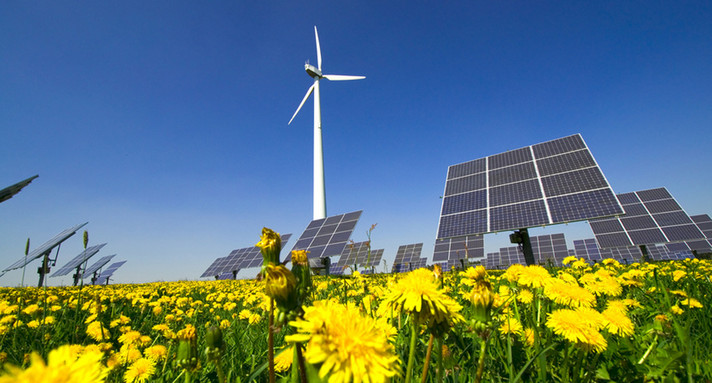With the start of the support scheme for renewable energies in the year 2000 and the decision to pull out of nuclear power in 2011, Germany initiated the energy transition (Energiewende) and the transformation of the energy system. Energy demand is now to be gradually met by renewable sources (including renewable hydrogen). The overriding principle is and remains a secure energy supply at all times, as stipulated in Section 1 of the Energy Industry Act: the aim of this act is to provide the general public with a safe, affordable, consumer-friendly, efficient, environmentally friendly and greenhouse gas neutral supply of electricity, gas and hydrogen which relies more and more on renewable energy.
The energy transition poses special challenges to Baden-Württemberg. Firstly, as a strong industrial region, there is a particularly high demand for energy. Secondly, nuclear energy and coal have played an important part in the power supply system of Baden-Württemberg. The share of nuclear energy has been gradually reduced from around 50 percent of electricity production in 2010 to zero in April 2023 when the last nuclear power plant Neckarwestheim II was shut down. All nuclear power plants in Baden-Württemberg are currently being dismantled.
Baden-Württemberg has set ambitious greenhouse gas reduction goals in its climate law with -65 percent until 2030 (compared to 1990) und the aim to reach net greenhouse gas neutrality by 2040. These can only be achieved with increased energy efficiency and significant energy savings as well as a rapid expansion of renewable energy and hydrogen.
In order to achieve these goals, Baden-Württemberg is politically active in many fields both at state and federal levels.

